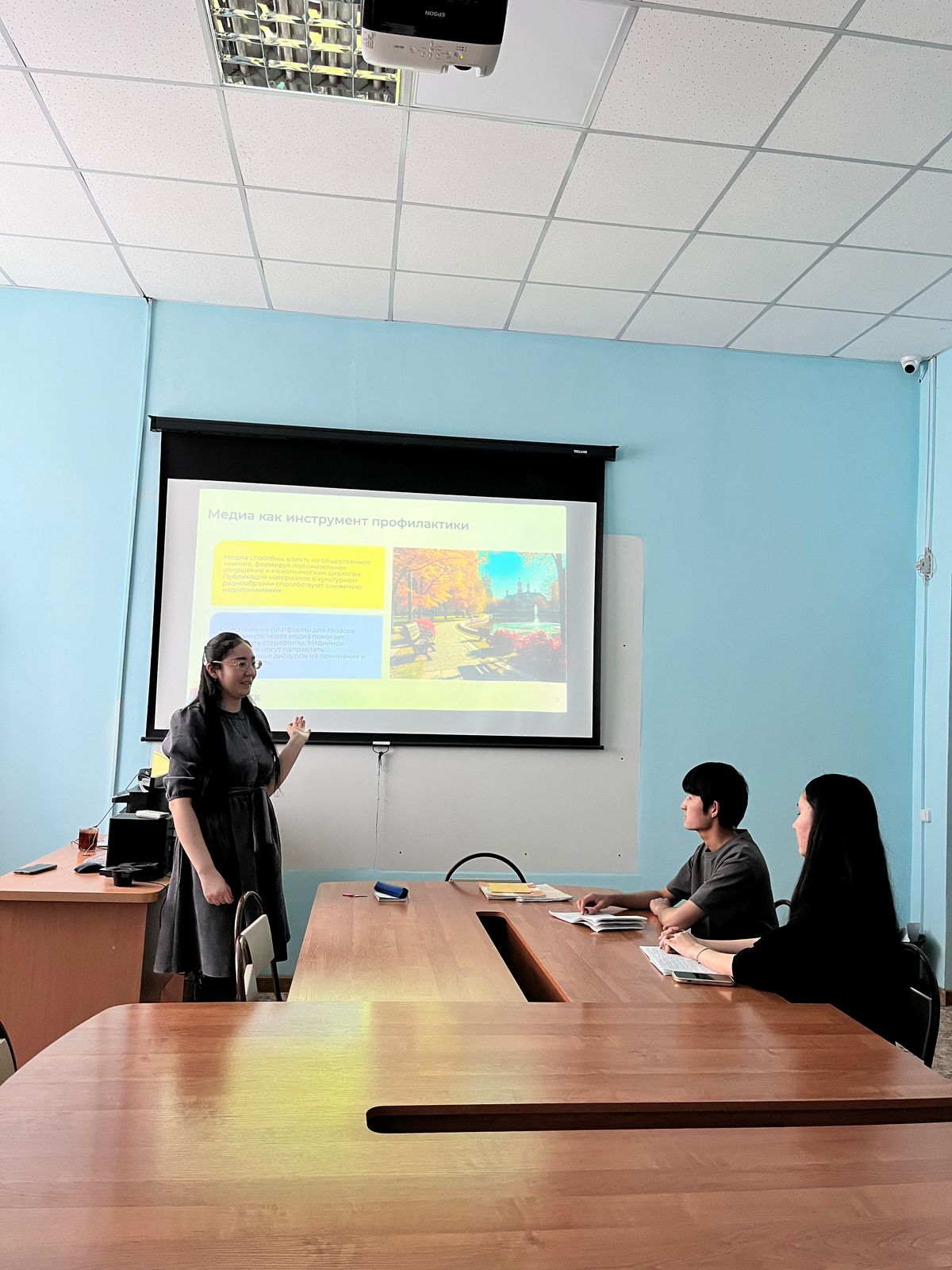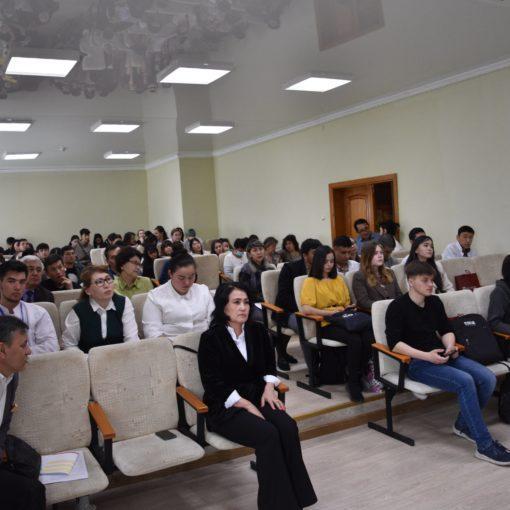As part of the program of educational activities and the formation of students’ value attitude to issues of interethnic communication, on 04/25/2025 the curator of the IN group-24-1-2 , a Master of Pedagogical Sciences, senior lecturer M.M. Mombekova, organized and conducted a curatorial hour on the topic: “Prevention of interethnic conflicts”.
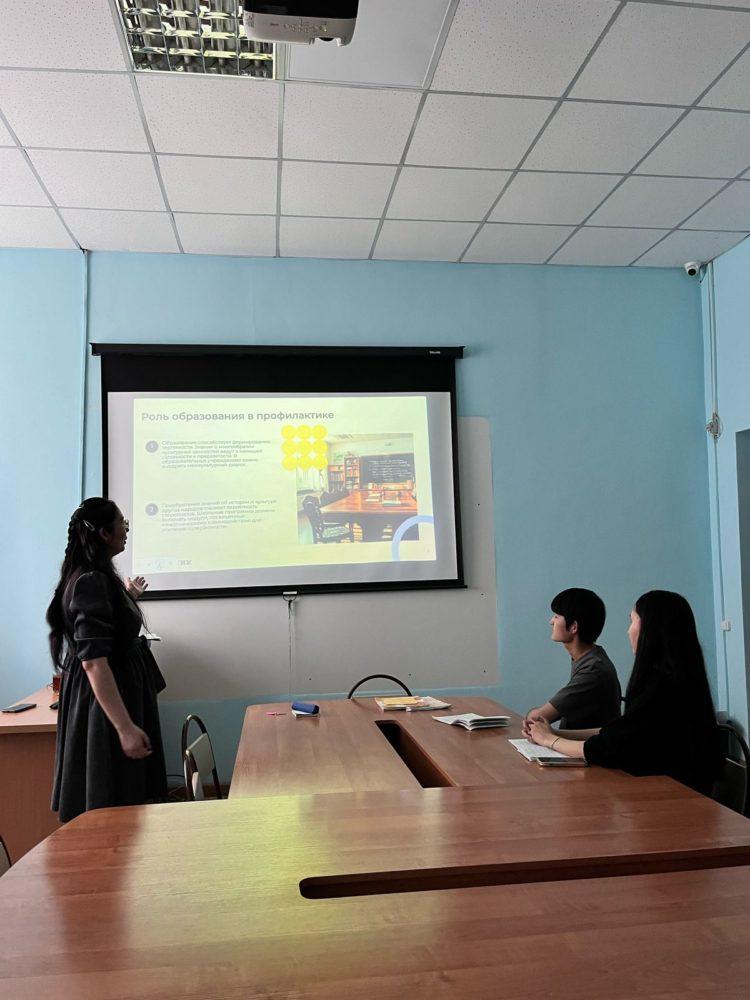
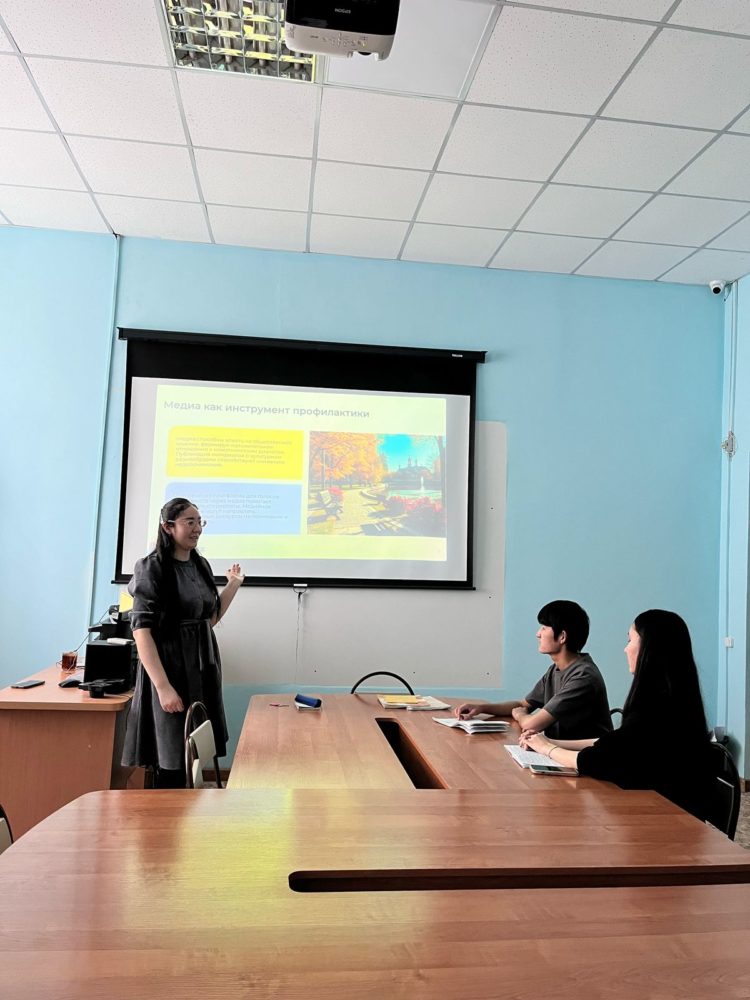
The purpose of the event was to form students’ conscious attitude to interethnic relations, develop skills for constructive interaction in a multicultural environment, and develop mechanisms to counter extremism, xenophobia, and discrimination based on nationality.
Curator of the IN group-24-1-2 presented the conceptual framework, including the terms:
Interethnic conflict is a form of social contradictions that arise between representatives of different ethnic groups.;
ethnic tolerance — as a willingness to accept cultural and behavioral diversity;
Cultural competence is defined as the ability to function effectively in an interethnic context.
Conflict theories (L. Kozer, K. Boulding, R. Dahrendorff) were also highlighted, emphasizing the role of social structures and ideological differences in the formation of ethnic confrontations.
The students were offered specially designed case studies that simulate real—life cases related to interethnic misunderstandings. In the process of group work, students analyzed the behavior of the participants, identified the causes of the conflict, and suggested ways to resolve it constructively based on legal and ethical norms.
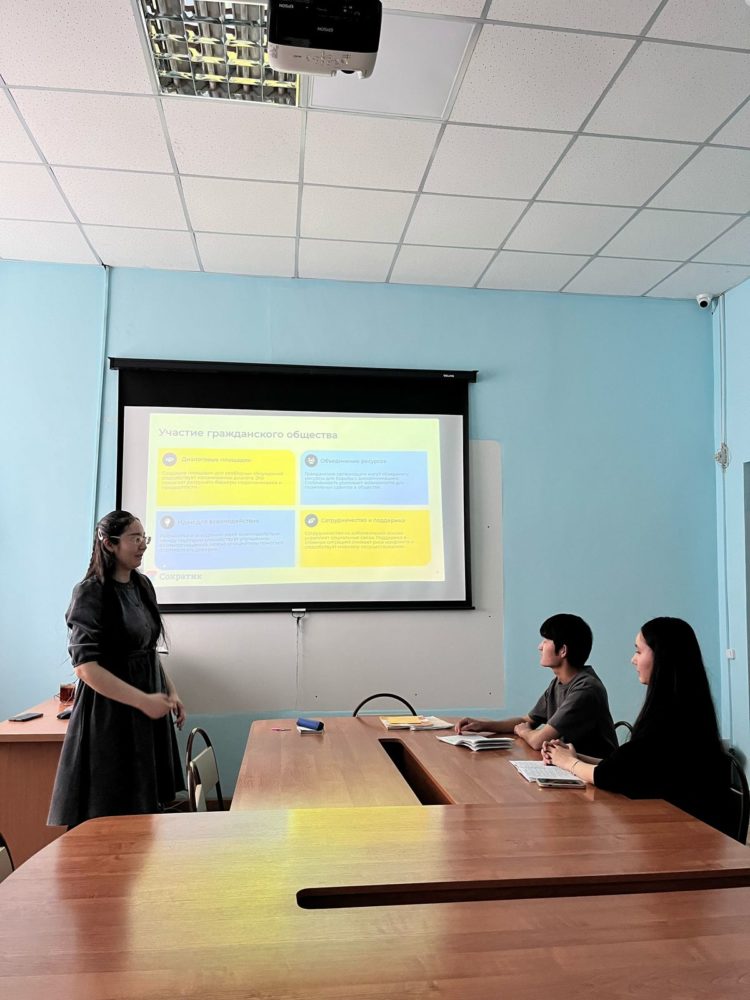
Special attention was paid to the methods of nonviolent communication and the principles of cultural sensitivity. In order to develop empathy and interpersonal communication skills, the participants took part in a role-playing game in which interethnic dialogues were modeled with elements of overcoming stereotypes.
It was noted that such events contribute not only to improving the level of intercultural literacy, but also to the formation of students’ sustainable behavioral strategies based on respect, dialogue and legal norms.

